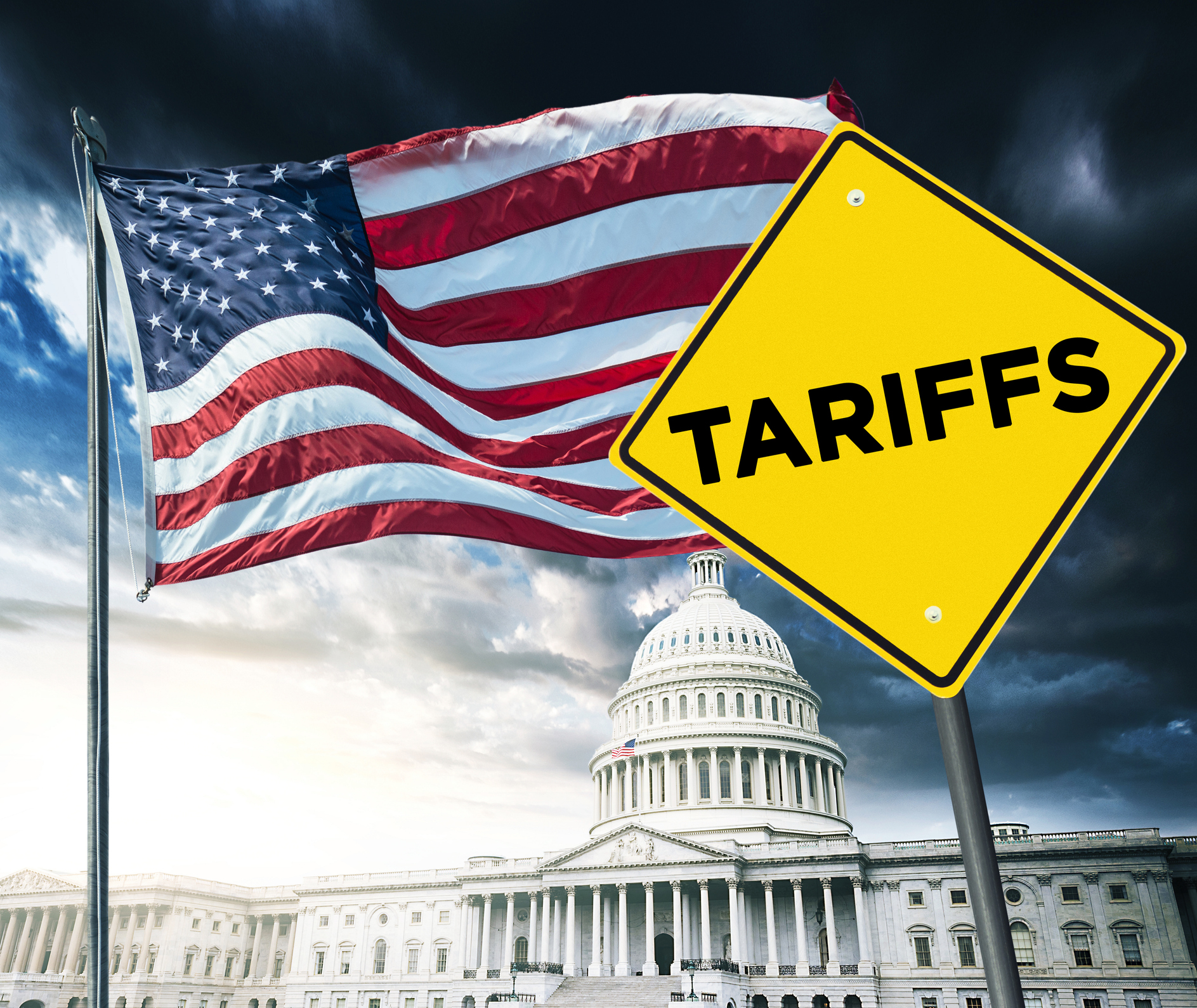Przegląd dynamiki handlu
Międzynarodowy krajobraz handlowy nieustannie się zmienia, wpływając na kraje na różne sposoby. Ostatnie ogłoszenia, szczególnie te dotyczące taryf i umów handlowych, wywołały dyskusje w wielu sektorach, w tym w logistyce i transporcie. Niniejszy artykuł analizuje, jak Kanada zdołała uniknąć tych burzliwych wód, szczególnie w obliczu zbliżających się terminów zawarcia nowych umów handlowych.
Kontekst terminu ceł
Ostatnie zapewnienie prezydenta USA o wysyłaniu listów do wielu krajów w celu negocjacji nowych umów handlowych wzbudziło zdziwienie na całym świecie. Zbliżający się termin wprowadzenia ceł związanych z tymi umowami wywołał efekt domina, który może zmienić wiele relacji handlowych.
Pomimo tej szerokiej fali niepewności, pozycja Kanady pozostaje odrębna, stanowiąc pewne pocieszenie dla jej partnerów handlowych i branży logistycznej. Podczas gdy wiele krajów zmaga się z potencjalnymi taryfami, kanadyjscy decydenci przygotowują dwustronne porozumienie ze Stanami Zjednoczonymi, unikając w ten sposób włączenia do tych szeroko zakrojonych globalnych taryf.
Atak taryfowy USA
W śmiałym oświadczeniu, USA obrało za cel liczne narody z potencjalnymi cłami w ramach tak zwanej opłaty „Dnia Wyzwolenia”. Cła te zagrażają modyfikacją norm handlowych ustalonych na przestrzeni dziesięcioleci. Na przykład, zamiar prezydenta, aby kontynuować nakładanie ceł, jeśli nie zostanie zawarte żadne porozumienie, nadał negocjacjom pilności.
Jednak wcześniejsze konfrontacje dotyczące handlu stworzyły podstawy relacji między Kanadą a Stanami Zjednoczonymi, wyposażając je do poruszania się w tym trudnym epizodzie. W kwietniu utarczka handlowa początkowo eskalowała, ale później sytuacja nieco się uspokoiła dzięki stłumieniu najbardziej ekstremalnych ceł i 90-dniowemu terminowi na sfinalizowanie wszelkich umów.
Strategiczna reakcja Kanady
W przeciwieństwie do innych krajów, Kanadzie udało się uniknąć nadchodzących fal taryfowych. Urzędnicy w Kanadzie aktywnie angażowali się w dyskusje, aby wspierać dwustronne porozumienia z USA, dążąc do rozwiązania do ustalonego terminu przed 21 lipca.
Ta dyplomatyczna zręczność jest kluczowa, zwłaszcza w krajobrazie, w którym logistyka i łańcuchy dostaw są coraz bardziej wrażliwe na tego rodzaju komplikacje handlowe. Spójna strategia handlowa może wzmocnić efektywność transportu, usprawniając ruch transgraniczny i zmniejszając potencjalne zakłócenia.
Implikacje dla logistyki
Konsekwencje tych harmonogramów handlowych mają istotne implikacje dla logistyki w całej Ameryce Północnej. Rozległa sieć powiązań transportowych łączy Kanadę i Stany Zjednoczone; w związku z tym zmiany w zasadach handlu mogą odbić się szerokim echem w łańcuchach dystrybucji towarów.
Utrzymując stabilność w negocjacjach handlowych, Kanada wysyła jasny sygnał operatorom logistycznym i firmom: niezawodny partner pozostaje na stanowisku, minimalizując ryzyko komplikacji w sektorach spedycji i transportu. Kanadyjski krajobraz logistyczny może znacznie skorzystać na skutecznym porozumieniu dwustronnym, zabezpieczając tym samym operacje spedycyjne i transportowe.
Powiązane zmiany w handlu
- Nowe zasady poboru opłat: Odpowiedzią Kolumbii Brytyjskiej na scenariusze taryfowe są plany wprowadzenia opłat dla amerykańskich ciężarówek przejeżdżających przez prowincję.
- Zmienność rynkowa: Zmienny rynek spot odzwierciedla szerszą niepewność gospodarczą wynikającą z zagrożeń taryfowych.
- Taryfy na samochody: Ostatnie ogłoszenia obejmują nałożenie cła w wysokości 25% na cały import samochodów do USA, co zasadniczo wpływa na łańcuch dostaw motoryzacyjnych w Ameryce Północnej.
- Wyzwania w łańcuchu dostaw: Logistyka zmiany trasy w obliczu trwających ceł stwarza złożoność dla przewoźników i producentów.
Przyszłość handlu kanadyjsko-amerykańskiego
W miarę zbliżania się terminu ostatecznego, oba kraje są bardzo świadome stawki. Zważywszy na to, że Kanada potwierdza swoją strategię niezwłocznego finalizowania umów handlowych, infrastruktura wspierająca dystrybucję stale się rozwija. Ta sprawna operacja jest niezbędna do utrzymania stałego przepływu towarów przez granicę, zapewniając firmy logistyczne, że mogą one nadal działać wydajnie.
W przypadku Kanady przyjęte podejście świadczy o zrozumieniu, że nawet w obliczu globalnych nacisków handlowych proaktywne działania mogą zachować stabilność. Profesjonaliści z branży logistycznej mogą spodziewać się wzrostu transakcji transgranicznych i, być może, bardziej opartych na współpracy ram, które usprawnią przepływ towarów między tymi dwiema gospodarkami.
Wnioski
W obliczu zawiłości handlu międzynarodowego, Kanada zdołała wyjątkowo dobrze poruszać się po tych prądach. Podczas gdy terminy taryfowe mogą wisieć nad wieloma narodami, skupienie się Kanady na ustanowieniu dwustronnego porozumienia handlowego służy jako latarnia stabilności dla logistyki. Pokazuje to znaczenie strategii w poruszaniu się po wodach handlu i wymiany.
Osobiste doświadczenia z firmami logistycznymi często mówią same za siebie. Chociaż recenzje i artykuły takie jak ten oferują nieocenione spostrzeżenia, nic nie zastąpi indywidualnych doświadczeń, jeśli chodzi o wybór środka transportu. Dla tych, którzy szukają niezawodnego transportu towarów na całym świecie w konkurencyjnych cenach, GetTransport.com jest gotów ułatwić różne potrzeby związane z wysyłką — od relokacji biur po dostawy mebli i transport pojazdów. Skorzystaj z wygodnych, ekonomicznych rozwiązań, aby uprościć swoją logistykę. Zacznij planować następną dostawę i zabezpiecz swój ładunek dzięki GetTransport.com.

 Kanada pozostaje nietknięta przez rozwój międzynarodowych taryf handlowych">
Kanada pozostaje nietknięta przez rozwój międzynarodowych taryf handlowych">